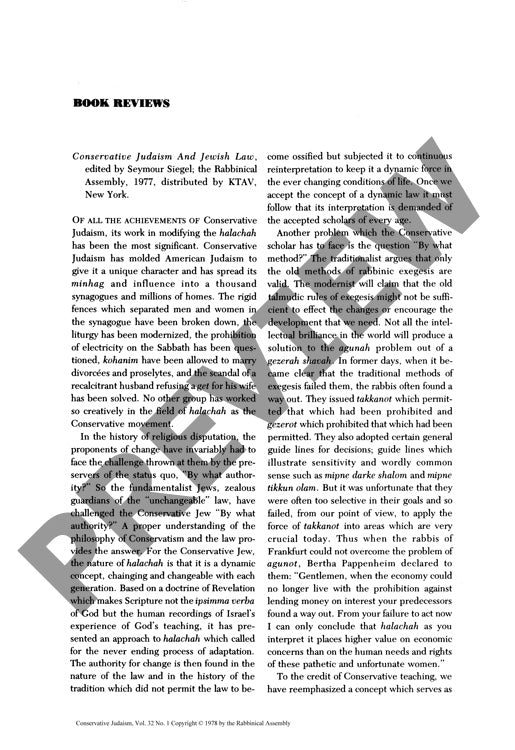Book Reviews
Couldn't load pickup availability
Conservative Judaism's enduring challenge lies in balancing tradition with modern adaptation - a tension powerfully illustrated through recent scholarly works examining Jewish law, community building, and religious education. Through critical analysis of pivotal texts including Seymour Siegel's volume on Conservative Judaism and Jewish law, Bernard Reisman's study of the Chavurah movement, Abraham Karp's immigrant experience compilation, and Bernard Lipnick's teenage education experiments, distinct patterns emerge in how American Jewish communities navigate religious evolution. The movement's most notable achievement appears in its creative modification of halachah, which addresses contemporary challenges while maintaining traditional authority through dynamic interpretation. The Chavurah experiment reveals both promising successes in community building and clear limitations in transforming established synagogue life. Historical perspectives from immigrant experience literature illuminate crucial patterns of American Jewish adaptation and acculturation. Meanwhile, innovative educational approaches show increased student engagement but raise valid concerns about maintaining substantive Jewish content and cognitive learning. The collective conscience of educated Jewish communities increasingly serves as the ultimate arbiter in balancing ethical imperatives with traditional law. These works collectively demonstrate Conservative Judaism's distinctive approach to religious evolution while highlighting persistent questions about authentic Jewish identity in contemporary American society.

More Information
-
Physical Description
-
Publication Information
Published 1978
ISBN
-
Publication Credits

